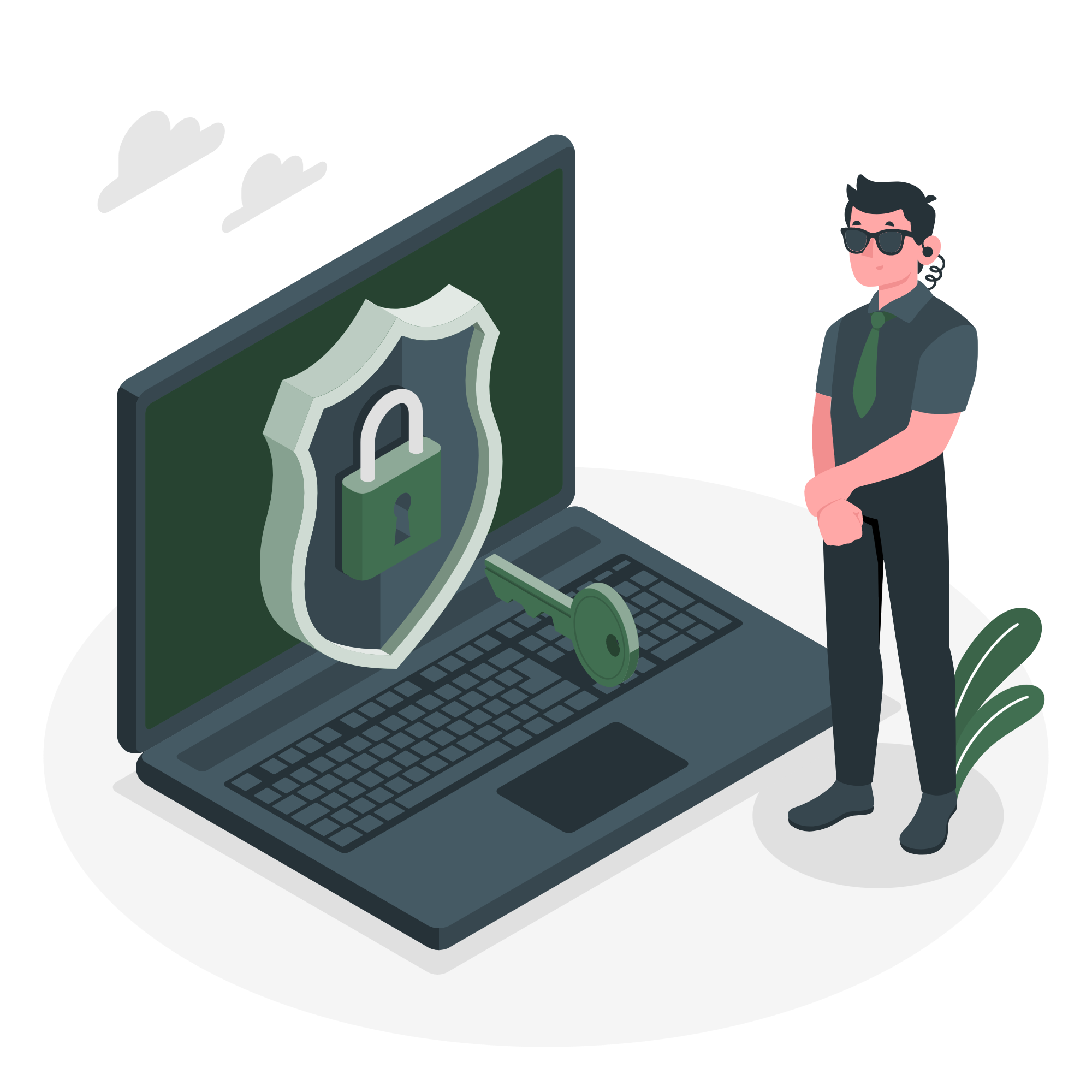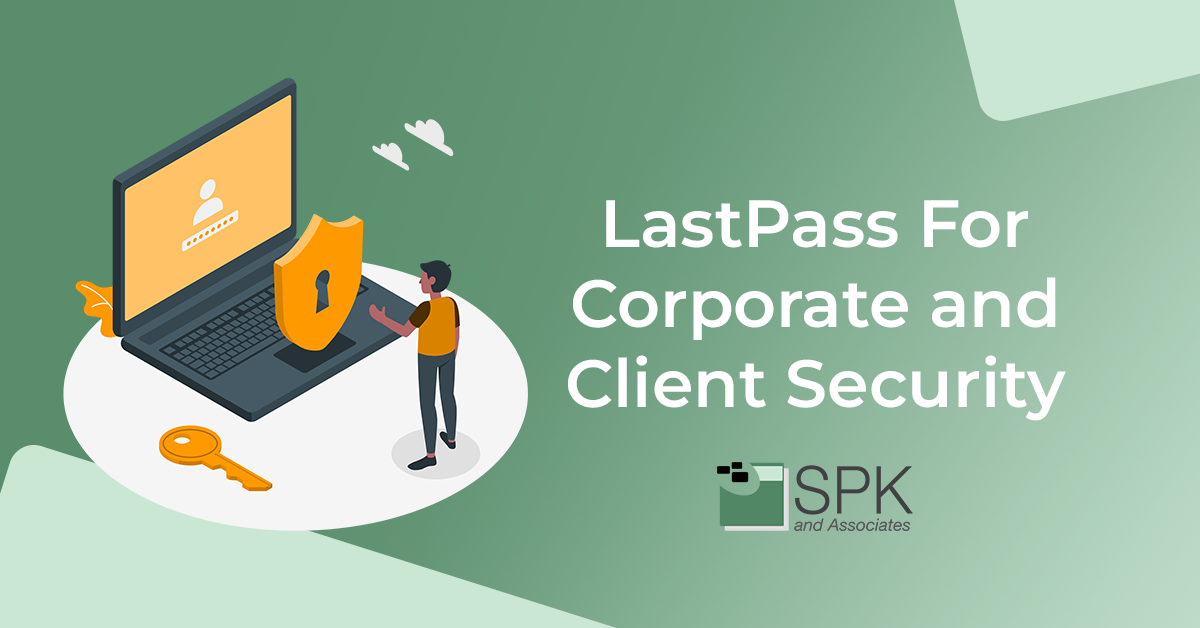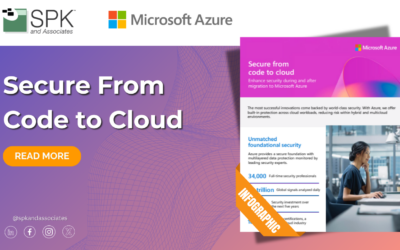LastPass For Corporate and Client Security
At SPK, we want to empower employees to safely manage their own passwords. Additionally, for organizations, we want to enable the enforcement of password standards. Businesses that follow good password standards, such as increased complexity, non-duplicate passwords and length, are less likely to be successfully targeted in password hack cybersecurity attacks. LastPass Business is a strong cybersecurity tool that can help both people and organizations achieve this.
Why Would I Need A Credential Manager?
If you’re reading this blog, then chances are you are interested in protecting your data anyway. You also probably have a multitude of emails you already need to remember or manage. From your emails to your bank account, to your domain log on and more.
Hackers become more intelligent every time technology does. They’re always trying to stay one step ahead. Technology does the same. It’s a constant battle between:
- Engineers developing the tech.
- IT and cybersecurity teams protecting the tech.
- Hackers trying to get unauthorized access.
But no matter how well your engineers design the tech, and no matter how well your cybersecurity teams try to future-proof or plan for attacks, hackers will continue to be crafty. And the general user of the tech can become complacent. A complacent user is a hacker’s opportunity. This is a key cybersecurity risk that can be minimized and ultimately avoided with the right tool in place. Credential managers like LastPass offer a fool-proof solution to a complacent users.

For Example
Your business operates in a highly-regulated manufacturing industry, such as medical devices. Your team has had an incredible idea to develop and deploy a product. It’s touted as the next big thing. So your engineers get to work designing it using SolidWorks or another CAD software. Your Mechanical Engineers are collaborating and use a tool like Ansys to complete their CFD simulation. You also have a range of other teams accessing various parts of the system with that precious IP throughout the product development lifecycle.
However, one of your team recently opened a phishing email. They have also become complacent and haven’t followed best practice password standards. One of their passwords is now leaked. That one password had been used to access multiple applications. Hackers now have access to your IP. Plus a list of what is basically a way for hackers to find vulnerabilities and expose them before your product hits the market. Your product now needs to be delayed for launch, and your business is now dealing with brand reputation issues given you couldn’t protect your own systems from attack.
This is just one example that details the risk at scale when not using a credential manager. You don’t want to be that business.
Gartner released the top eight cybersecurity predictions for 2022-2023 in this post to help you protect your business against other doomsday examples.
What are The Benefits Of Using LastPass?
There are a few specific features that LastPass offers that support business security. These include:
Secure Password Sharing
With LastPass, businesses can securely share passwords with other employees or even external contacts. Sending passwords in plain text via email or even via instant messaging apps is bad practice. This can lead to passwords being intercepted through the network or inspected by staff with elevated privileges. Lastpass Business allows for secure password sharing in a convenient way.
Directory & Single Sign-On (SSO) Integration
Having so many passwords to remember for so many websites and applications can be a challenge. Hence why so many users typically default to reusing the same password. This is a risk. Once a hacker has identified the password, they have access to multiple applications. Potentially leads to IP hacks too.
Over the years as cyber-hackers have become more intelligent, password complexity has also had to evolve. With Lastpass Business, users only need to know their own corporate single-sign-on credentials. Then, they gain access to the LastPass database of passwords. Additionally, enterprise single-sign-on systems often include multi-factor capabilities. This further increases the security of that credential.
LastPass Unique Passwords
A credential manager like Lastpass Business is essential for all companies. Big or small. The number of websites, applications, and systems that employees need to deal with on a daily basis is constantly growing. Best practice should mean that each of those websites and systems receives a unique password. This way, a compromised password can’t be used on several systems.
This can reduce the impact and risk of phishing attempts. A phishing attempt is when a hacker tries to obtain a password from a user. Then, they attempt to use it on another system they have access to. In cybersecurity terms, we call this limiting the “blast radius”.
Automated Provisioning
LastPass Business supports granular access to credentials for certain individuals based on directory groups. For example, Human Resources (HR) users are granted access to only HR credentials by virtue of being an HR directory group member. Likewise, HR users can be limited to having no access to credentials only intended for the Sales group, etc.
LastPass Uses AES256 Encryption
Encryption typically involves applying an algorithm to your desired set of source data. For example, let’s say that you want to encrypt the phrase “my secret”. We’ll use a rudimentary key: The letter “A”.
Our defined sample algorithm is defined as: Place your key after every character in the source data.
The resulting encrypted data would look like: “mAyA AsAeAcArAeAtA”
This is slightly tough to read, but after glancing at it long enough, you’ll be able to reverse engineer what the source data was.
AES is a complex algorithm, and 256 indicates the key size. With a larger key size, we have more possible ways the resulting data comes out.
Cracking encrypted data rarely involves trying to reverse engineer the algorithm. It’s almost impossible. Instead, computers use “brute force”. They try every possible key combination.
With AES256, this would take hundreds of years even with the most powerful supercomputers available today. This is what makes LastPass AE256 encryption so effective against hacks.
Conclusion
Phishing scams are becoming commonplace. Additionally, it’s easy for staff to become complacent with passwords. This can lead to them maintaining insecure passwords that can be easily guessed or cracked through “brute force” attacks.
In a heightened world, where both sensitive information and precious IPs are accessible via machines, it is a business’s responsibility to protect its data. They need to limit their risk by providing employees with the best tools to manage their credentials. Businesses can also limit their risk further by enforcing password standards and enabling Single Sign On with multi-factor authentication
At SPK, we highly recommend the use of LastPass Business as a credential management tool. We to work with many clients who need to protect both their data and brand reputation. If you would like to discuss how to improve your business’s cybersecurity, you can contact our expert team here.






